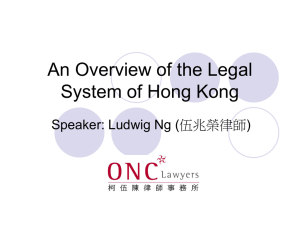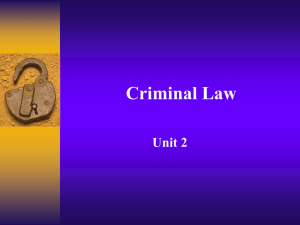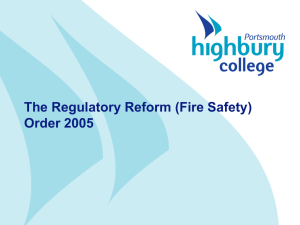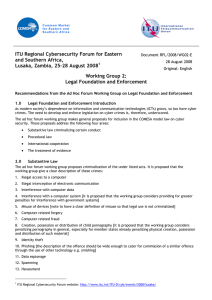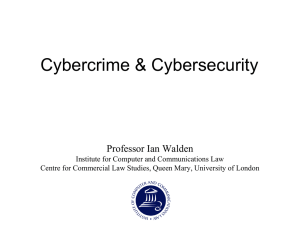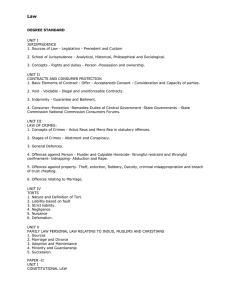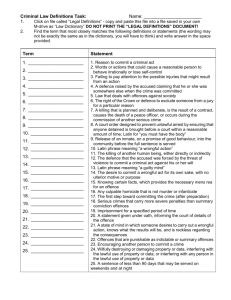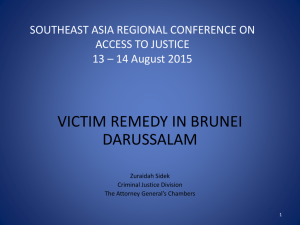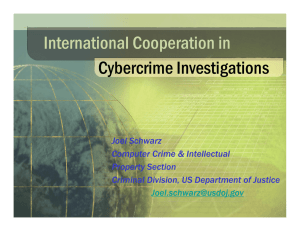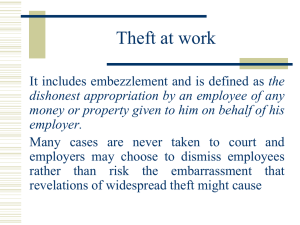Law Reform & Cybercrime Professor Ian Walden
advertisement
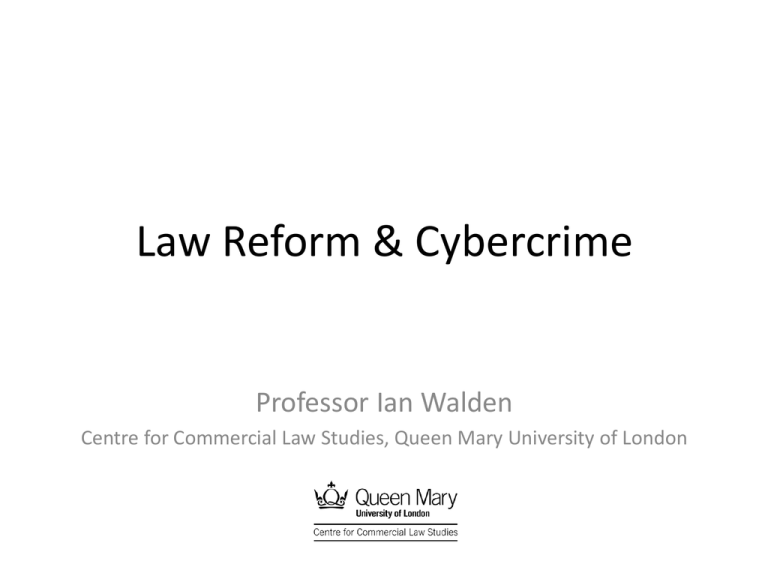
Law Reform & Cybercrime Professor Ian Walden Centre for Commercial Law Studies, Queen Mary University of London Substantive offences • Stand-alone statute – Legislative efficiency & publicity • Relationship to existing offences • Piece-meal reform – Amending the penal code & criminal procedure • Computer integrity offences – ‘protected computers’ • Content & contact-crimes – Criminal defamation & intermediary liability • Sanctions & remedies – Legal persons Criminal procedure • Powers – For whom? • ‘Law enforcement’ – By whom? • Authorisation: Judicial, administrative or executive • Standards: ‘probable cause’ & ‘necessary and proportionate’ – Encryption: security & ‘back-doors’ • Procedural offences • Safeguarding rights – Non-citizens/residents – Transparency & notification (pre, post) – Oversight International co-operation • Inter-state – Mutual legal assistance • modernization – Direct access to forensics • Open source • Service providers • Networks – Building relationships • Not too high, nor too low, but just right! – International co-operation • e.g. Nigeria (death penalty) & US (consecutive sentences) • e.g. ‘double criminality’: Minimum 12 months imprisonment Reform process • Multi-stakeholder involvement – e.g. Kenya ‘Interagency Technical Committee on the Development of a Comprehensive Cybercrime Law’ • Civil society – ‘Article 19’ • Technical community – e.g. universities • Law enforcement – Police & national security agencies • External expert input • ‘Next steps’ capacity building – Law enforcement, prosecutors, judiciary
